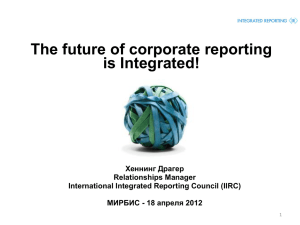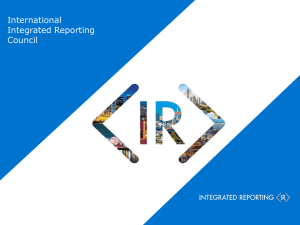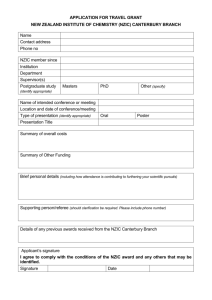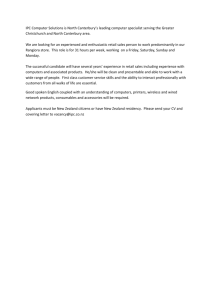THE DEVELOPMENT OF INTEGRATED REPORTING: A PARADIGM OF REGULATORY CAPTURE?
advertisement
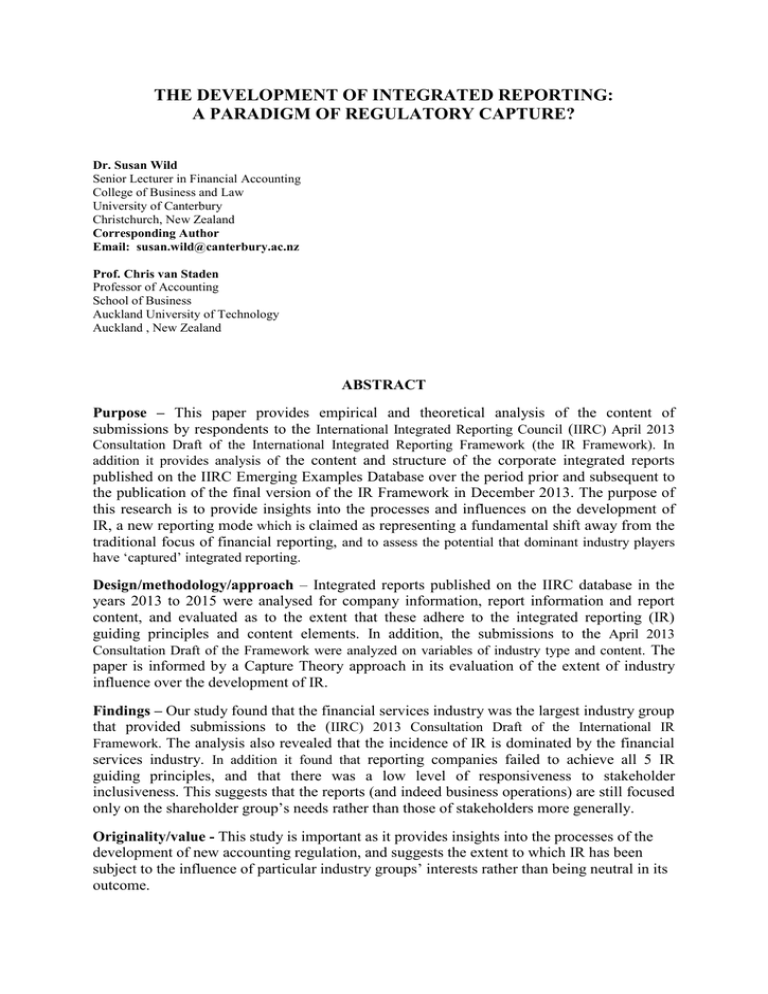
THE DEVELOPMENT OF INTEGRATED REPORTING: A PARADIGM OF REGULATORY CAPTURE? Dr. Susan Wild Senior Lecturer in Financial Accounting College of Business and Law University of Canterbury Christchurch, New Zealand Corresponding Author Email: susan.wild@canterbury.ac.nz Prof. Chris van Staden Professor of Accounting School of Business Auckland University of Technology Auckland , New Zealand ABSTRACT Purpose – This paper provides empirical and theoretical analysis of the content of submissions by respondents to the International Integrated Reporting Council (IIRC) April 2013 Consultation Draft of the International Integrated Reporting Framework (the IR Framework). In addition it provides analysis of the content and structure of the corporate integrated reports published on the IIRC Emerging Examples Database over the period prior and subsequent to the publication of the final version of the IR Framework in December 2013. The purpose of this research is to provide insights into the processes and influences on the development of IR, a new reporting mode which is claimed as representing a fundamental shift away from the traditional focus of financial reporting, and to assess the potential that dominant industry players have ‘captured’ integrated reporting. Design/methodology/approach – Integrated reports published on the IIRC database in the years 2013 to 2015 were analysed for company information, report information and report content, and evaluated as to the extent that these adhere to the integrated reporting (IR) guiding principles and content elements. In addition, the submissions to the April 2013 Consultation Draft of the Framework were analyzed on variables of industry type and content. The paper is informed by a Capture Theory approach in its evaluation of the extent of industry influence over the development of IR. Findings – Our study found that the financial services industry was the largest industry group that provided submissions to the (IIRC) 2013 Consultation Draft of the International IR Framework. The analysis also revealed that the incidence of IR is dominated by the financial services industry. In addition it found that reporting companies failed to achieve all 5 IR guiding principles, and that there was a low level of responsiveness to stakeholder inclusiveness. This suggests that the reports (and indeed business operations) are still focused only on the shareholder group’s needs rather than those of stakeholders more generally. Originality/value - This study is important as it provides insights into the processes of the development of new accounting regulation, and suggests the extent to which IR has been subject to the influence of particular industry groups’ interests rather than being neutral in its outcome.
